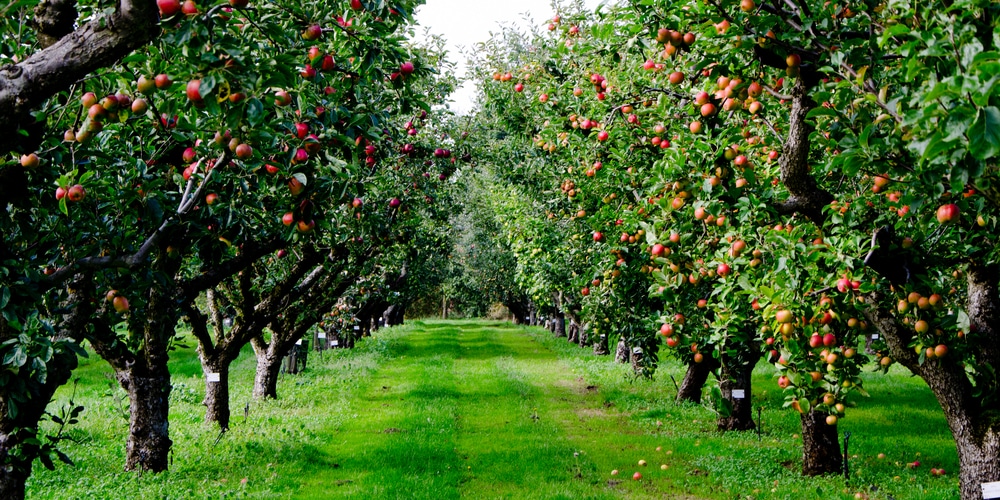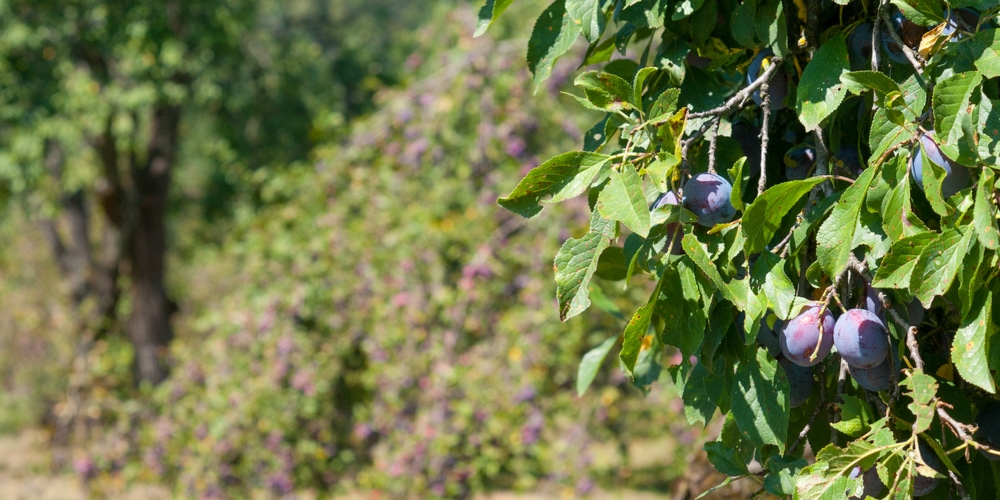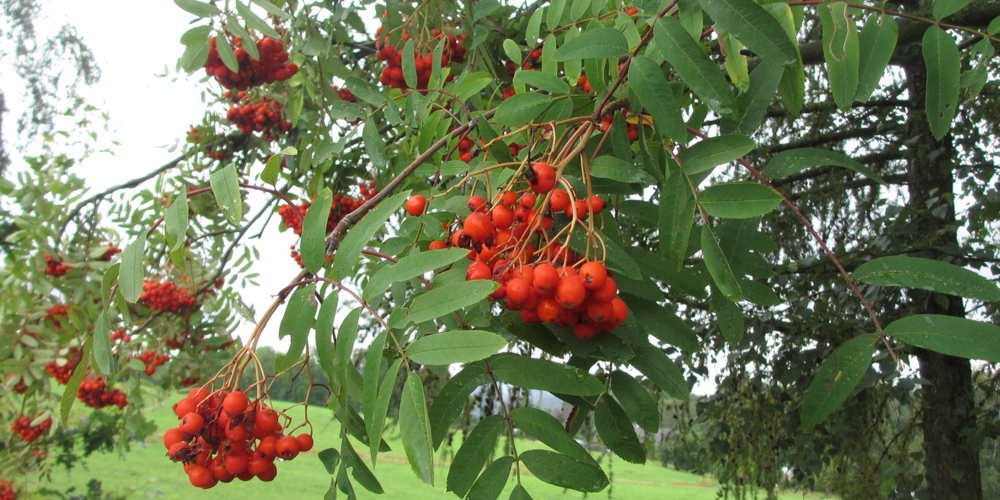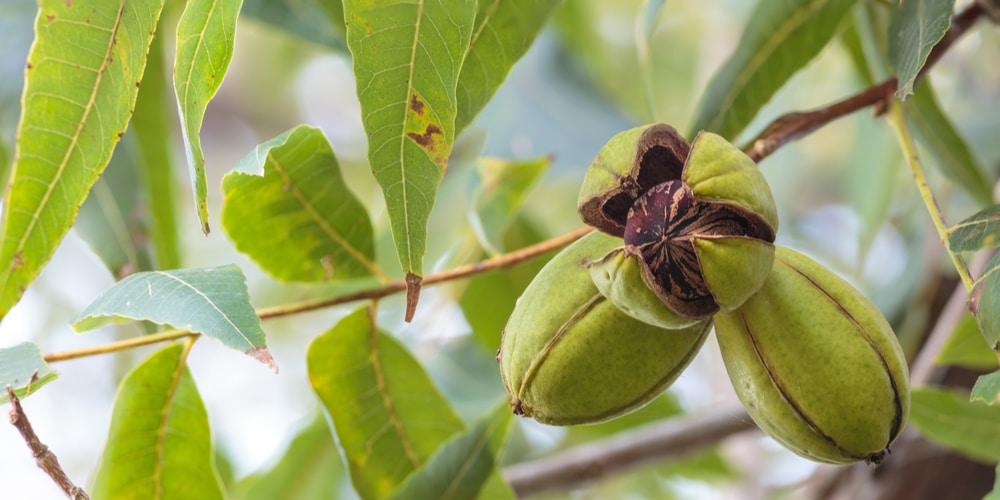Tennessee is a very long state that contains USDA zones 5b-8a. For convenience, we can divide this state into three separate areas: West Tennessee, Middle Tennessee, and East Tennessee. Also known as the three Grand Divisions, each region differs from the other parts. So, what are the best fruit trees to grow in Tennessee?
Best Fruit Trees to Grow in Tennessee
1. Apple trees
Apples are the perfect choice for chilly areas (5b-6a) like the ones on the Alabama border. Above all, you can choose plenty of varieties for your orchard, including:
- Akane
- Ashmead’s Kernel
- Golden Delicious
- Honeycrisp
- Pink Lady
- Red Delicious
In spring, preening your apple cultivars is essential because the limbs down at the bottom may not be large enough to handle the fruit load. Especially if you planted dwarf apple trees. In any case, if you find the water sprouts and hangers on the tree, you will have no problems knowing where to cut them off.
Water sprouts are stems that grew the year before. Usually, they grow straight up and cannot, therefore, be productive. Plus, if they do get fruit, they will likely fall over, breaking the entire limb in some cases.
Hangers come off the bottom of the limbs. Unlike the water sprout, the hanger grows downwards. So, it will only receive shade from the limbs above it.
2. Cherry trees
Cherry trees thrive in the cold and get thirsty in the heat. So they are the best fruit trees to grow in Tennessee. But you still need to be aware of when you should plant these trees before you start your cherry plantation.
Timing is everything when adding a cherry tree to your land. Above all, avoid planting these trees before a rainy season. Otherwise, their delicate root will rot. After that, you only need to choose between the sweet or sour varieties.
The Kwanzan variety is an ornamental cherry tree with beautiful flowers (up to 30 petals!) in pendulous clusters. But it will not produce tasty cherries. So, here are more delicious alternatives:
Lambert (Allegedly, the most blood-red, yummy delicacies if you provide the trees with 800 chill hours)
- Lapins
- Mahaleb, aka Prunus mahaeleb
- Montmorency (For sour cherry lovers only)
- Prunus serotina (The ideal choice for making jams and jellies)
3. Pear Trees
Pear trees are some of the best fruit trees to grow in Tennessee because they are versatile. These trees belong to the Rosaceae family, which reminds us they are ancient and include thousands of cultivars all over the globe. Of course, it loves Tennessee’s cool valleys (7a-8a).
Unlike apple trees, several pear cultivars cannot grow in wintry places. So, here are some cold-hardy pear varieties worth mentioning.
- Angelys
- Decana
- Flemish Beauty (Most likely, the most cold-resistant cultivar)
- Harrow Delight
- Seckel
- Warren
When you pick pears from the tree, pay attention not to break off the fruit spurs. The spurs are little stubs on the branches that can fruit again and again if you do not break them off. For clarity, you can lift the fruit gently and go the opposite direction until you hear the stem snap.
The more spurs you leave, the better crop you will have next year.
4. Plum trees
Growing a plum tree is a gratifying experience. In part because plum trees are cold hardy down to zone 5, and in part because even a single plum tree produces enough fruit for a family of three. Plus, it is a fine tree for the backyard gardener who likes food forest designs. It looks elegant!
The best fruit trees to grow in Tennessee that belong to the plum tree species are:
- Alderman (very cold hardy but need a pollinator variety like Superior or Waneta)
- Damson
- Italian plum tree (Prunus domestica)
- Pembina
- Premier
- Santa Rosa
- Sapalta
- Stanley
The only catch is that not every species self-pollinates like the Prunus Toka, a hybrid plum tree. So, you may have to plant at least twice to get fruits.
5. Sorbus trees
Among the best fruit trees to grow in Tennessee, you can find the species of Sorbus—from the same family of pear and cherry trees (Rosaceae). But unlike their sweet siblings, Sorbus trees produce astringent fruits.
The American mountain-ash (aka Rowan tree) is the most widespread Sorbus in America.
Why would anyone plant a Sorbus tree? Well, the answers may vary. For one thing, the round fruits make tasty cider-like drinks. And I am pretty sure there are other reasons as well. But after fermentation, these alcoholic beverages are the perfect Christmas present. You can also enjoy them during a picnic! They are too good not to pass the news on to others.
The Sorbus varieties may not be the ideal choice for beginners as they tend to get diseases over time. And while these stubborn trees may survive, they usually represent a threat to other fruit trees.
6. Walnut trees
Can anyone end a list of the best fruit trees to grow in Tennessee without mentioning this giant? For millennia, walnut trees have given humans more than their edible seeds. In temperate zones, walnut cultivation gives us sweet sap we can turn into syrup, dense wood, and even an investment opportunity thanks to its veneer quality.
Apart from the popular black walnut variety, some cold-resistant species that only need between 450 and 1,500 cold hours per year are:
- Apache (Ok, you got me. This one is a Pecan.)
- Buartnut
- Butternut
- Carpathian (Juglans regia)
- Heartseed
Pruning your tree every year in June is necessary to establish a leader. Otherwise, the tree will not grow straight. So, getting rid of all the side branches is imperative for satisfactory results in the long run. But besides this yearly chore, caring for your walnut trees will not take up much of your time.
Nut trees
In reality, most nuts trees are suitable for the plant hardiness zones in Tennessee. You choose any one of these:
- American Hazelnut
- Chinese Chestnut (sweet-flavored nuts)
- Hickory
- Kanza (Also, this variety has good resistance to scab)
- Lacebark Pine






